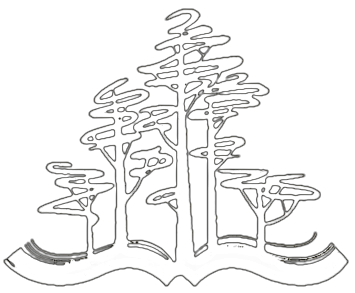Summer School on the Russian Literature. 2019.
Vol. 15. № 4
The article discusses the poem about the Golubinaja kniga in the context of the chronicle miscellany from the collection of V. M. Undol’skij. The chronicle tales and the poem have some common images and motives, and the listener orientation, which explains the combination of the different reasons for the object to be the first, is one of them. The comparison of the poem with the chronicle tales allows to see how old-Russian reader was taking the poem: the stories of king David are included in the context of the world and Russian history.
Keywords: Russian literature of the XVII century, poem about Golubinaja kniga, miscellany.
Keywords: Russian literature of the XVII century, poem about Golubinaja kniga, miscellany.
Olga Dokuchaeva
The poem about the Golubinaja kniga in the collection of V. M. Undol’skij
The article is devoted to the problem of the polemic of Laurence Sterne with Voltaire and its influence on N. V. Gogol and parodying him F. M. Dostoevsky. This study raises the question of the perception of Laurence Stern’s novel „Tristram Shandy“ by Gogol and Dostoyevsky as a satire on Voltaire’s „Candide“ and on ancient Greek novels.
Keywords: Parody, literary tradition, satire, travesty, plot scheme, receprion, intertext.
Keywords: Parody, literary tradition, satire, travesty, plot scheme, receprion, intertext.
Elena Petrova
About the influence of Voltaire’s „Candide“ and Laurence Sterne’s „Tristram Shandy“ on „Nose“ by N. V. Gogol and „The village of Stepanchikovo“ by F. M. Dostoyevsky
The article deals with two stories written by N. S. Leskov — „Koza“ and „Yearning of the spirit“, in which the writer refers to one plot. For the first time, a comparative analysis of texts is carried out, which reveals their structural and semantic differences.
Keywords: N. S. Leskov, „Koza“, „Yearning of the spirit“, „Igrushechka“.
Keywords: N. S. Leskov, „Koza“, „Yearning of the spirit“, „Igrushechka“.
Satarova Sofia
N. Leskov’s story „Yearning of the spirit“
The history of the printed text
The history of the printed text
The article is devoted to the analysis of intertextual and intermedial references and functions in a part of „An Overnight Journey“ by V. Bryusov.
Keywords: V. Bryusov, symbolic textual strategy, intertext, intermedial links, ecphrasis, intermedial translation.
Keywords: V. Bryusov, symbolic textual strategy, intertext, intermedial links, ecphrasis, intermedial translation.
Marfa Rusanova
„An Overnight Journey“ by V. Bryusov
Intermedial translation as a symbolic textual strategy
Intermedial translation as a symbolic textual strategy
The possible sources of V. Khodasevich’s poem „Grain’s Way“ are established and the hypothesis of D. Bethea on the connection between V. Khodasevich’s poem „Grain’s Way“ and the translation of S. Tschernichowski’s poem „Song to Astarte and Bel“, which Khodasevich performed for the anthology of Jewish poetry, is tested. As a result of the study, it was found that when writing poems on the themes of the ancient Near East, Tschernichowski used the publication of Sumerian lamentations for Dumuzi, the motives of which were transferred to the cults of Astarte and Bel. In turn, Khodasevich borrowed from Tschernichowski the idea of the spring resurrection of nature as „law of life and establishment“, but he designated it in translation as „wisdom and law“, and in his original poem he completely reduced it to „wisdom“. Thus, it becomes clear that Tschernichowski’s poems served as a catalyst for the creation of the poem „Grain’s Way“.
Keywords: V. F. Khodasevich, „Grain’s Way“, Sch. Tschernichowski, „Song to Astarte and Bel“, ancient Mesopotamia, lamentations for Dumuzi.
Keywords: V. F. Khodasevich, „Grain’s Way“, Sch. Tschernichowski, „Song to Astarte and Bel“, ancient Mesopotamia, lamentations for Dumuzi.
Vladimir Emelianov
V. F. Khodasevich’s „Grain’s Way“ and lamentations for Dumuzi
The article examines one of the poems of Vladislav Khodasevich, in order to discern any parallels with the famous ballet by P. Tchaikovsky The Nutcracker. Additionally, it scrutinises the liasons between the ballet theme in Khodasevich’s poem and Eugene Onegin by Alexander Pushkin. Last, this article reveals the biographical plot behind the poem.
Keywords: poem, Vladyslav Khodasevich, Aleksander Pushkin, Pyotr Tchaikovsky, ballet, Nina Berberova.
Keywords: poem, Vladyslav Khodasevich, Aleksander Pushkin, Pyotr Tchaikovsky, ballet, Nina Berberova.
Zakryzhevskaia Elena
On possible genesis of poem by Vladislav Khodasevich „Friends, friends! Maybe soon...“
The aim of this article is to present the literary nuances of the thematic concept of food and the culinary patterns’ manifestation within Kharms’ prose. The focus of the present study is directed to those literary works, written between 1929 and 1934 not only in the literary manner and techniques of Chinary, but those of OBERIU as well. Moreover, in the present study we intend to disclose the fundamental nature of the metaphysical pattern in Kharms’ literary works and the scientific influences they present within such areas as astronomy, physics and mathematics.
Keywords: D. I. Kharms, food, the poetics of expressiveness, thematic intertwining, culinary code.
Keywords: D. I. Kharms, food, the poetics of expressiveness, thematic intertwining, culinary code.
Chirilà Bianca-Elena
The thematic concept of food in D. I. Kharms’ literary work
On the thematic intertwining „food — science — metaphysics“
On the thematic intertwining „food — science — metaphysics“
Contacts
summerschool@list.ru
В оформлении сайта использованы материалы Freepik.


